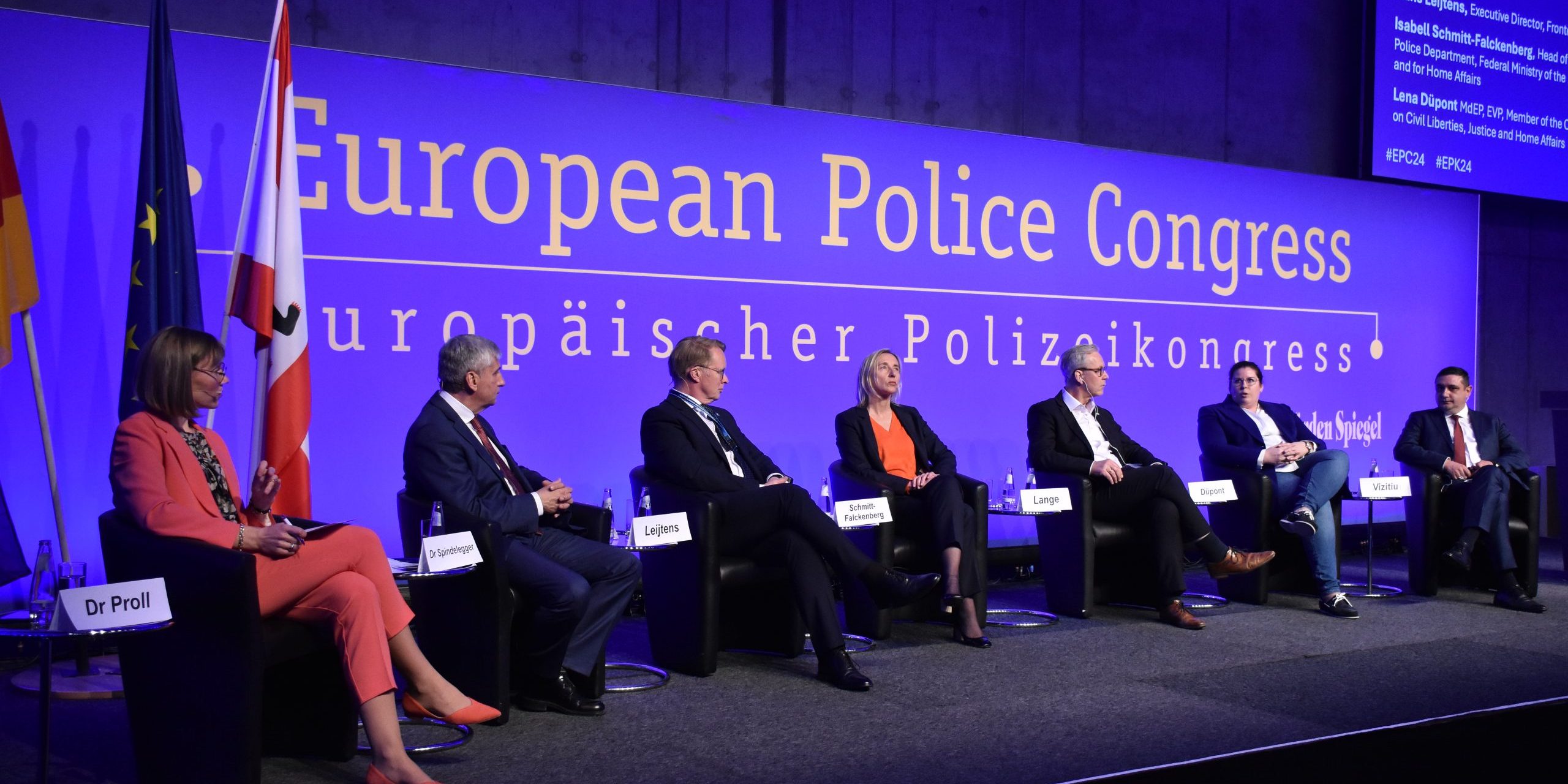(BS) Die europäische Dimension in der Migrationsfrage ist von erheblicher Bedeutung für das Gelingen nationaler Migrations- und Integrationspolitik der einzelnen Mitgliedsstaaten. Dr. Michael Spindelegger, Generaldirektor des Internationalen Zentrums für die Entwicklung von Migrationspolitik, skizzierte in seiner Key Note zu einer Diskussionsrunde zur europäischen Migrationspolitik auf dem 27. Europäischen Polizeikongress die aktuelle Lage. Die steigenden Zahlen von Flüchtlingen seien nicht bloß ein europäisches, sondern ein globales Problem und werde durch eine Vielzahl von Krisen ausgelöst. In Europa habe man sich der Herausforderung angenommen, indem man die EU-Asylagentur eingerichtet und Frontex strukturell und personell ausgebaut habe. Dazu seien Verträge mit Heimat- und Transitländern der Asylsuchenden in Entstehung. Man strebe eine größere Kontrolle über die Zuwanderung an, auch indem man robustere und schnellere Prozeduren bei den Asylverfahren implementieren möchte. Entscheidend sei, die richtige Balance zwischen organisierter legaler Migration und der Kontrolle des Zustroms von Asylsuchenden zu finden.
Grenzsicherung verbessert
Auch Hans Leijtens, Geschäftsführender Direktor von Frontex, machte darauf aufmerksam, dass die Migration nicht nur eine Realität darstelle, mit der man umgehen müsse, sondern von den EU-Mitgliedsstaaten ausdrücklich gewollt sei. Sie müsse aber reguliert und organisiert werden. Das bedeute auch, dass illegale Migration verhindert werden müsse. Hier herrsche Nachholbedarf: Den 420.000 abgelehnten Asylanträgen stünden bislang lediglich 90.000 Rückführungen entgegen. Leitjens machte auch auf die Bedeutung der Integrationsleistung aufmerksam, die von großer Wichtigkeit für einen gelingenden Migrationsprozess sei. Er betonte zudem, dass die externen Grenzen der EU, Sache aller Mitgliedsstaaten sei. General Marius Vizitiu, Direktor der rumänischen Grenzpolizei, berichtete in diesem Zusammenhang von der erfolgreichen Zusammenarbeit mit Frontex und Europol im Kampf gegen Schleuser auf der Balkanroute. Mit Serbien habe man Abkommen geschlossen, um gegenseitige Grenzübertritte zu ermöglichen, was die Grenzsicherung erleichtere. Asylgesuche wickle man inzwischen zu 40 Prozent im Rahmen von Schnellverfahren ab.
Social impact
Lena Düpont, MEP for the European People’s Party (EPP), did not want to make an urgent distinction between the main problems of organising border security, balancing internal political conflicts and fighting crime. All topics are equally important. In the next decade, these problem areas would have to be tackled in parallel. Isabell Schmitt-Falckenberg, Head of the Federal Police Department at the Federal Ministry of the Interior and for Home Affairs, also said that there was no simple solution to the various problems. However, she emphasised the importance of successfully implementing the EU asylum compromise over the next two years. The demographic situation in Europe makes migration indispensable, but this should not be at the expense of security or lead to the polarisation of society.
The Chief of Police of Dortmund, Gregor Lange, reported on the effects in the Ruhr metropolis. Over 21 per cent of Dortmund residents have a foreign passport and 40 per cent have a migration background. Unfortunately, trust in the institutions in terms of their ability to find solutions and manage problems has fallen. Acceptance of democracy has fallen to 50 per cent. Trust in the police is also declining. It is therefore important to give the entire population the feeling that the police are taking care of their concerns. It is about the safety of everyone, including migrants. The recent rise in crime is definitely linked to migration, but this is not the cause. The background to this is the high proportion of male migrants and the lack of structures and prospects for this population group, which is more susceptible to crime.
Outlook
All panellists placed hope in the EU asylum reform. Lena Düpont self-critically noted that 8 years to find a compromise is far too long and that there was a lack of ability to act at parliamentary level. This was also due to the fact that a broad willingness to compromise had only emerged in the last legislative period as a result of the situation. She pinned her hopes on the conclusion of agreements with third countries. In future, prescreenings are to take place at the EU’s external borders. Asylum seekers from countries with an acceptance rate of less than 20 per cent should then undergo fast-track procedures. Michael Spindelegger believes that this could create a new image, as the quick rejection would lead to fewer compatriots making their way to Europe. So-called ‘Migrant Resource Centres’ are also intended to help. They are intended to provide those wishing to leave the country with a realistic assessment of their chances of success. This is often distorted by the promises of profit-seeking smuggling gangs. Isabell Schmitt-Falckenberg is also very concerned about combating people smuggling. She called for discussions to be fact-orientated. The problems can only be solved together, which naturally leads to compromise solutions. Lena Düpont also called for Germany, as a central EU state, to show understanding for the states on the Union’s borders.
Next year’s European Police Congress will take place from 20 to 21 May. Click here to register.







